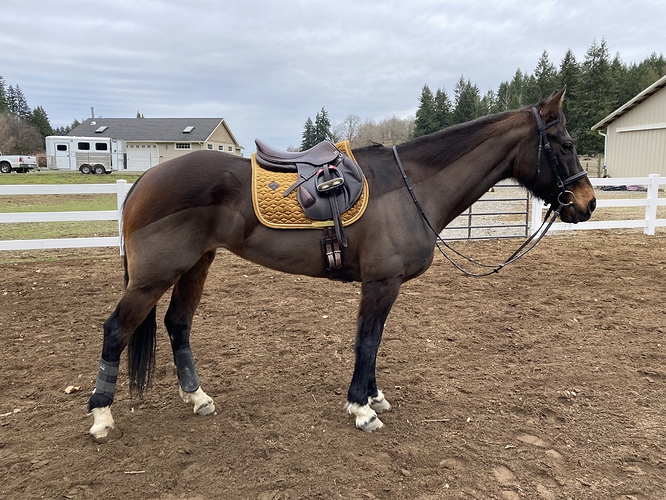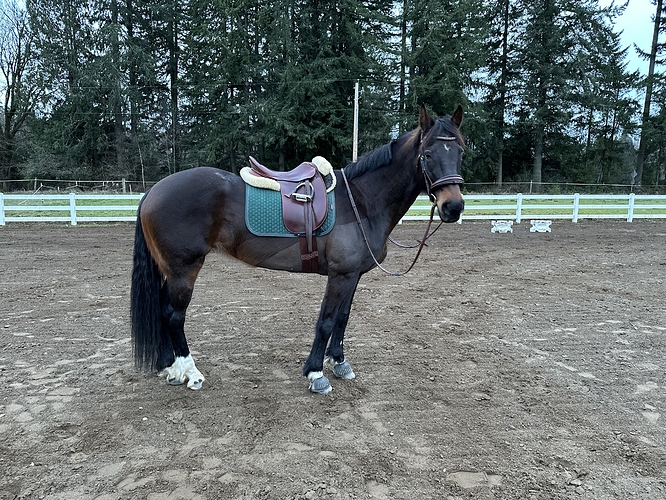I’m going cross-eyed reading about feeding regimes for ulcery horses so I’m hoping to get feedback (hah hah) on my own set up if y’all are willing! We are in Canada and boarded out. Narrowed her issues down with vet to very likely ulcers.
- currently very good condition for her age/breed, but has dropped some weight recently
- extremely light work load, but plans to increase this year. Only 4 years old
- currently almost 24/7 hay in a slow feed net, timothy or local grass generally. We have hay shortages yearly here now so it’s usually whatever hay we can get for a good price.
- medium-large paddock 24/7, never stalled. Grass field in the summer months. Fresh water always available.
- 1kg Matrix Ration Balancer daily, iodized salt and a small scoop of beet pulp (to manage her FWS). Ingredients attached for the RB. Screenshot_20240506_193625_Drive|690x214
- going to start MadBarn’s Visceral+ this week just because I have some on hand.
Matrix RB ingredients: Wheat Millrun, Canola Meal, Soybean Meal, Beet Pulp, Alfalfa Meal, Dicalcium Phosphate, Limestone, Salt, Molasses, Vitamin and Trace Mineral Premix, Soy Oil, Whey Powder, Alltech Yea-Sacc®, Alltech Actigen®, Lysine, Threonine, Methionine, Magnesium Oxide, Bio Plex Zinc®, Bio Plex Copper®, Bio Plex Selenium®
She’s been doing SO well on the RB for the last handful of months but I’m wondering if I should remove it in exchange for something buffering like alfalfa pellets + vit/min. She used to be on that last year, but it’s much cheaper for me to feed the RB; however if it may be contributing to ulcers, I will switch it out stat. Thoughts? My understanding was that RBs tend to be okay for ulcery horses, but also that forage-only is ideal.
My insurance doesn’t cover ulcers so after discussing with my vet, I’m planning to take the route of trying omeprazole or GastroGuard and see if it helps. I’ve weighed the pros and cons of scoping and may pursue that route eventually.


